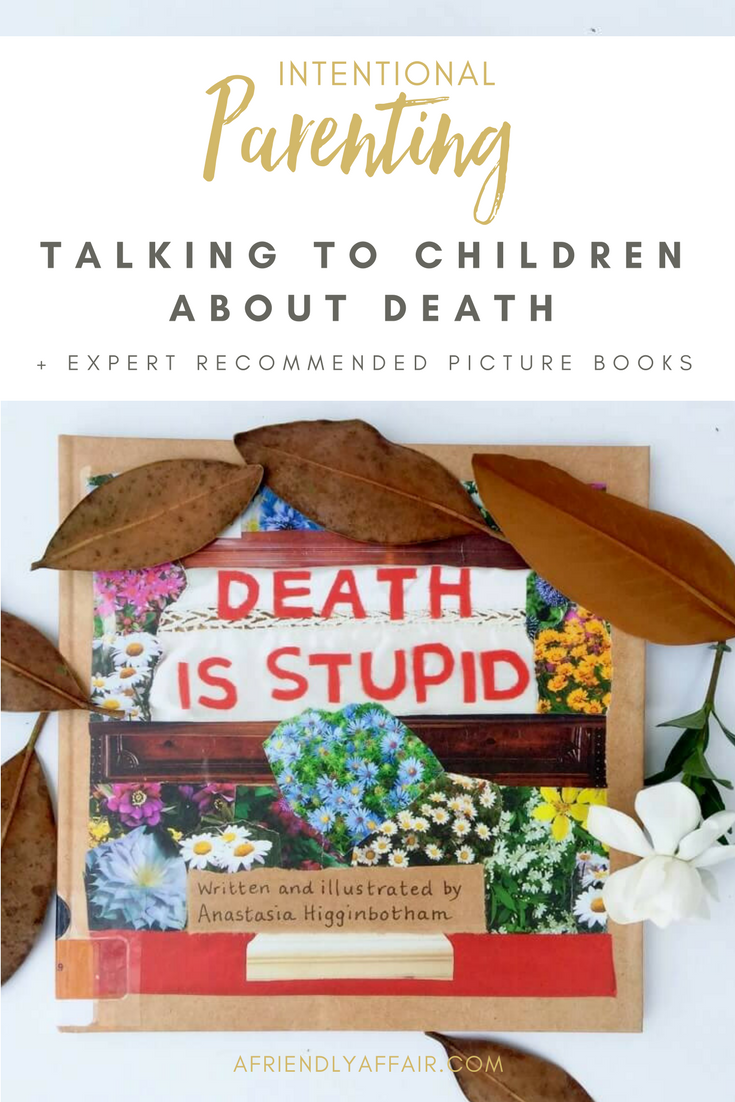Death is Stupid
Expert tips + picture book review for talking to your children about death + tragedy. How to support a child in mourning + books to use as tools to support and help explain and express big, important emotions.
Death is Stupid, by @ahigginsbooks is another, straight to the point, meet-em-where-they’re-at book about death. And for talking about grief with the young ones, that is really the marker of greatness: zero sentiment, only truth, no fluff and mumble. Even though I don’t care for the word “stupid,” I deeply appreciate the wisdom of this book, and I definitely see the value in tempering my mama-knows-best reaction here. Grief is reactive, it says dumb things, and tolerance is key. Thanks for the jarring nudge.
In this creatively illustrated book, a young boy has lost his grandmother, is dealing with the loss, and grappling with the confusing things adults say. His head is brimming with pain, curiosity, and questions and all of the answers seem to make it worse. Fortunately, the narrator’s cool and steady voice reminds us both of the important realities: this isn’t your fault, your questions are welcome, and it is okay to be angry and skeptical. While staying grounded in the language and understanding of a child, Higginbotham conveys some really important things including that grief is unique and everyone is traveling through loss together – so we are bound to step on each other’s toes!
For kids age 5-7, grief is a strange and leery place, full of pain, curiosity, questions, and confusing answers. Its hard for caregivers, many of whom are dealing with their own heartbreak, to deal with the gut wrenchingly repetitive questions about the life and behavior of the deceased. “Why did she leave her toothbrush, where is she sleeping, do you think she is hungry.”
I am so sorry. If I could provide some kind of magic pill to buttress your strength and help you answer boldly, clearly, and kindly, I would. Work hard at patience. You don’t have to have the answers. Communicate that you are uncertain, and its okay. “I am your mama, and I am an expert, and I will take care of you.” But you are also their companion. “We are feeling, grieving, and learning together.” Your child wants to hear this.
The 5-7 year old child is processing the inevitability of death. They tend to believe that if you are careful enough, death can be avoided. This naiveté is enviable and something I know that you want to protect. But in grieving children, especially at this age, this idea often mutates into “I could have done something to prevent this from happening…if only I was better, more clever, faster.” Keep these ideas from growing by being honest, and facing the hard fact yourself: death is inevitable. This guilt often goes unsaid, manifesting as self-destructive behavior, which is why I love that Death is Stupid ends with a sweet reminder: “Treasure what was dear to them: You.”
Children 5-7 use play and imitation to process their loss. Some never use words. Be sensitive to their desire to communicate, watch their play, and play with them. Play is not an escape, for grieving children, it is important work. Allow it, participate in it, facilitate it when you can.
There are many other things I could say about kids this age, but the most important thing is this, and I think Death is Stupid does it well: Grief is unique, anger is normal, play is important. Questions fly and answers are inadequate, but you will make sure they are cared for. You will maintain stability, shelter, and nutrition for them. Accept your limitations, and companion well. Your child is on a lifelong journey of experiencing and re-experiencing the loss of their loved one.
Be nurturing, be predictable, be open. And if these things become to hard, get help.
Here is an amazon affiliate link if you want to buy: Death is Stupid


